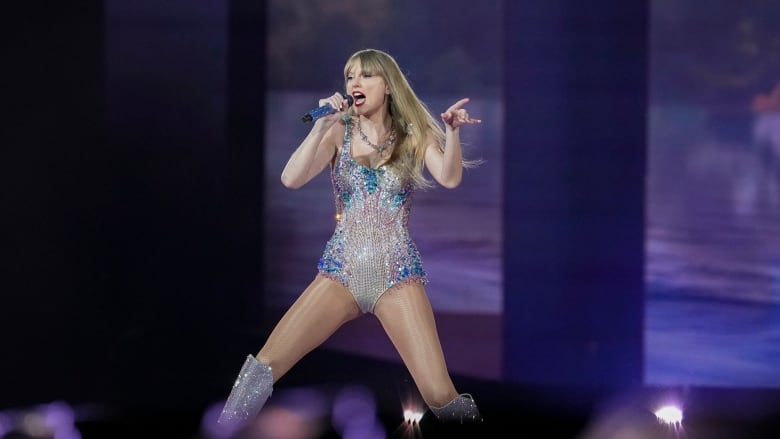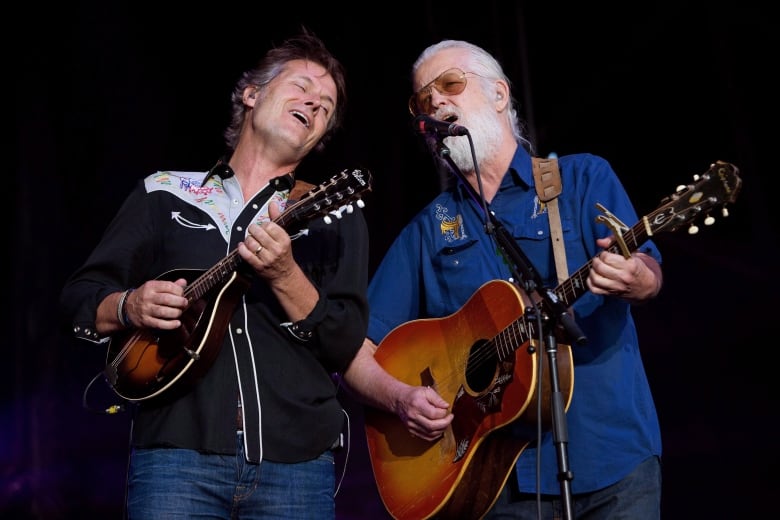Concert ticket system is 'broken,' say artists. But some experts say targeting resellers isn't the fix
More than 250 artists signed a letter Thursday calling out 'predatory' re-sellers

The way concerttickets are soldis"broken," according to a new letter signed by more than 250 major recording artists includingBillie Eilish, Blue Rodeo and Fall Out Boy.
The letter, signed Thursday,voiced support for the Fans First Act, a bill pending in the U.S. Senate that would prevent speculative ticket sales when a seller does not have a ticket. It also would require "all-in" pricing, outlaw deceptive websites and strengthen enforcement of penalties for bot usage to scoop up tickets.
"We are joining together to say that the current system is broken," the artists said in a letter to congressional sponsors of the legislation.
"Predatory re-sellers and secondary platforms engage in deceptive ticketing practices to inflate ticket prices and deprive fans of the chance to see their favourite artists at a fair price.
"Predatory resellers should not be more profitable than the people dedicating their lives to their art."
Other prominent artists who signed include Cyndi Lauper, Aimee Mann, Indigo Girls, Lorde, Green Day, The Cure's Robert Smith and Duran Duran.
"Buying a ticket to see your favourite artist in concert is like going through a gauntlet for too many Americans,"said U.S. Sen. Amy Klobuchar, who is aco-sponsor of the bill, in a statement on her website."This is hurting music fans and it's hurting artists."
It's an issue lawmakers are looking at in Canada, too. Measures suchas more transparency, prohibiting bots, and strengthening penalties have already been adopted in some provinces, CBC previously reported. In last week'sfederal budget, the Liberal government pledged to work with provinces to crackdown on "fraudulent resellers and reseller practices which unfairly drive up prices."
But as ticket prices soar, and resale prices soar even higher (tickets for Taylor Swift's Nov. 14 Toronto show go ashigh as $11,267 a pair on StubHub, for instance), some experts argue that the letter and the U.S. bill are unlikely tochange much for fans. And they say targeting resellers isn't necessarily the fix.
The perception is often that artists feel they're being exploited or taken advantage of by the ticketing industry, said Shiraz Mawani, a ticket resellerin Toronto. And he says he can empathize with their frustration.
"But at the same time, it's difficult to find a solution that really works.Because, at the end of the day, it's a supply issue,"Mawani said.
"There are only so many seats available."

Sales are booming
Live musicsales are booming, according to Live Nation,which owns Ticketmaster. Earlier in April, the company said in a filing with regulators that 2023 brought all-time highs in both attendance and ticket sales. This waspowered by big stadium tours from artists including Taylor Swift and Beyonc, Live Nation said.
Economists have predicted that, this year,musicfanswill continue to see high prices for big-name artists.
One problem with the letter signed by the musicians calling for ticket reform is that it's directed atresellers such as StubHub instead of Ticketmaster and Live Nation, which hold the market share and "considerable control" in the industry,said TimothyDewhirst, a professor ofmarketing andconsumer studies at the University of Guelph.
"It's become prettypricey to deal with Ticketmaster for alot of the leading concerts thatare out there," Dewhirsttold CBC News.
Some artists have been vocally critical of Ticketmaster, calling out their extra fees and dynamic ticket pricing.Last year, letter signatory andThe Cure's Robert Smith convinced Ticketmaster to refund some of what he said were the "unduly high"fees for tickets forthe band's U.S. tour.
Some fans had complained that the fees essentially doubled the price of their tickets. In a post on X last year,formerly Twitter, Smith wrote that he was "sickened."
That was a "prettynotable gesture" on Smith's part,Dewhirstsaid, but it's not one he sees some of the major artists out there, such as Taylor Swift, replicating.
"People are willingly paying the high prices. She probably figures, 'well, people are willingly able to do that, that's the going rate,'so to speak," he said.
Fix the Tix?
Venues and artist groups have formed a coalition called Fix the Tix, led by the National Independent Venue Association (NIVA), that is pushing for passage of the Fans First Act, which they say offers the strongest protections for ticket buyers.
Stephen Parker, executive director of NIVA, said that bill is "the most fan- and artist-friendly ticketing legislation that Congress has ever introduced."
"It makes illegal the abusive, predatory behaviour from predatory resale platforms and ticket brokers," he said, and also calls for a national evaluation of the ticket resale market.
But going after re-sellers, or more specifically, bad actors in the reseller market, won't fixthe ticket price problem, saidMawani, the independent ticketing consultant. And limiting reselling could actually limit the supply of tickets for people who aren't able to buy them during the pre-sale or the moment they became available online, he added.
"This act that they're trying to push through does very little on the Ticketmaster side," he said.
"It could be a step in the right directionin terms of continuing the conversation around tickets and resale... but I don't know if this specific billis going to be the one that's going to change the world."
Ticketmaster told Reuters it backed bans on speculative sales and deceptive websites, as well as better enforcement of anti-bot legislation.
Clarifications
- This story has been updated to clarify that Shiraz Mawani is a ticket reseller, not a broker.May 21, 2024 12:39 PM ET
With files from Reuters, The Associated Press















_(720p).jpg)


 OFFICIAL HD MUSIC VIDEO.jpg)
.jpg)



























































































